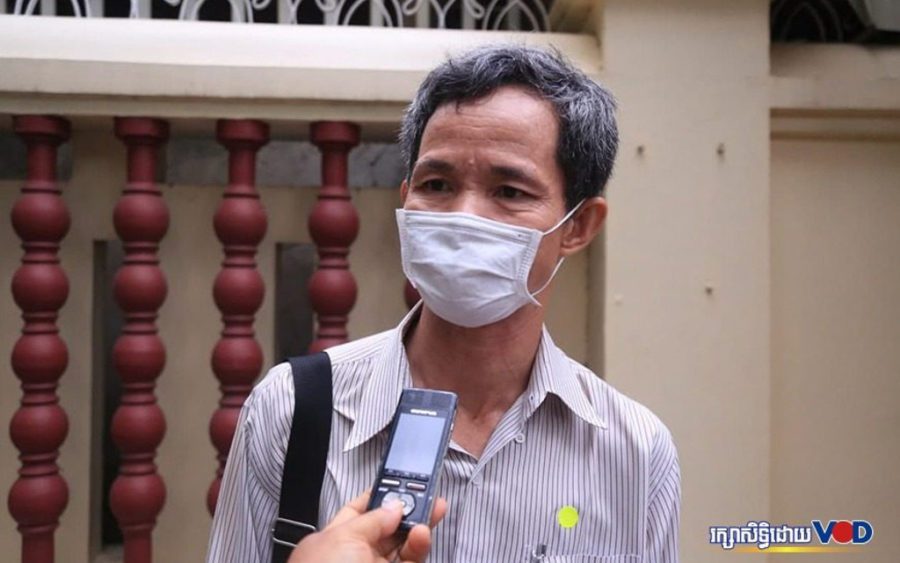Former CNRP lawyer and board member Choung Choungy has applied for political rehabilitation — after being banned by the Supreme Court in 2017 — but an Interior Ministry spokesperson said his reentry into politics could be hampered by an unresolved court case.
The former CNRP lawyer joins nearly two dozen members of the opposition party who have requested the Interior Ministry — with approval from the king — to set aside the five-year bans they were handed in 2017 when the party was dissolved. All such requests had been approved so far.
Choungy applied for the adhoc amnesty scheme on June 24, he said, but had not heard from Interior Ministry officials yet.
“I have doubts as to why it is taking so long, since some people who submitted for rehabilitation in the past received it very soon,” Choungy said.
The veteran CNRP lawyer said the Supreme Court ban robbed him of opportunities to represent clients involved in politically motivated cases because he was not allowed to discuss political issues. The ban prevented 118 senior CNRP members from partaking in political activity.
“I request to do politics so that it is easy to defend clients, and I also want to participate in political activities, so that I can join in helping society,” Choungy added.
Close to two dozen CNRP members have requested amnesty since March 2019, with at least four new political parties created by those who asked for rehabilitation.
Choungy did not want to speculate on whether he would join an existing political party and said that he primarily wanted to represent clients in political cases. He also added that he has pending litigation after he advised Cambodian voters that it was not compulsory to vote in the 2018 national election.
Khieu Sopheak, an Interior Ministry spokesperson, said the lawsuit, which was filed by the National Election Committee in 2018, could affect Choungy’s application.
“He still has not been cleared to receive rehabilitation to do politics again. For now, he cannot receive [amnesty] yet since he is still tied up with the complaint,” Sopheak said.
The NEC claimed that a Choungy video posted on Facebook in July 2018 — in which he says that voters are not obligated to vote and that it was not illegal to boycott the election — was meant to confuse people and make them lose trust in the election body. The NEC also filed a complaint against Choungy with four ministries and the Bar Association.
After being dissolved in 2017, the CNRP called for its voters to boycott the 2018 national election as part of its “Clean Finger” campaign, a reference to the indelible ink used to mark a voter’s finger after they submit their ballot.












